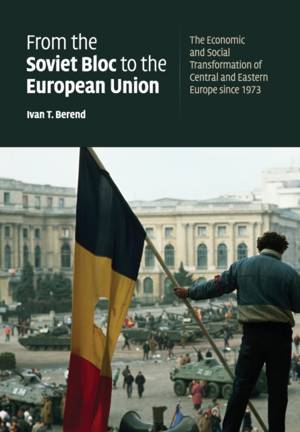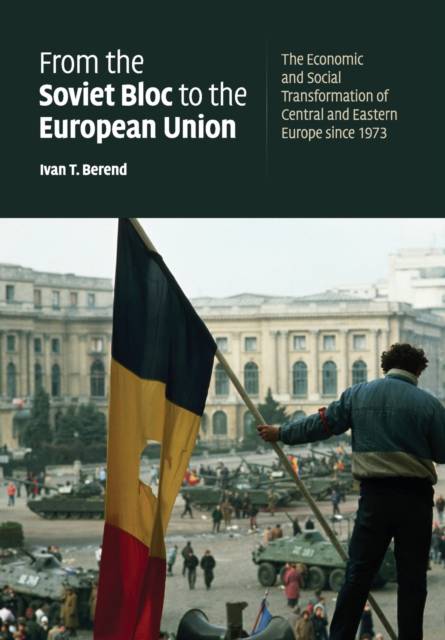
Je cadeautjes zeker op tijd in huis hebben voor de feestdagen? Kom langs in onze winkels en vind het perfecte geschenk!
- Afhalen na 1 uur in een winkel met voorraad
- Gratis thuislevering in België vanaf € 30
- Ruim aanbod met 7 miljoen producten
Je cadeautjes zeker op tijd in huis hebben voor de feestdagen? Kom langs in onze winkels en vind het perfecte geschenk!
- Afhalen na 1 uur in een winkel met voorraad
- Gratis thuislevering in België vanaf € 30
- Ruim aanbod met 7 miljoen producten
Zoeken
From the Soviet Bloc to the European Union
The Economic and Social Transformation of Central and Eastern Europe since 1973
Ivan T Berend
Paperback | Engels
€ 53,45
+ 106 punten
Omschrijving
The Soviet Union's dramatic collapse in 1989 was a pivotal moment in the complex history of Central and Eastern Europe, and Ivan Berend here offers a magisterial new account of the dramatic transformation that culminated in ten former Soviet Bloc countries joining the European Union. Taking the OPEC oil crisis of 1973 as his starting point, he charts the gradual unravelling of state socialism in Central and Eastern Europe, its ultimate collapse in the revolutions of 1989, and the economic restructuring and lasting changes in income, employment, welfare, education and social structure which followed. He pays particular attention to the crucial role of the European Union as well as the social and economic hurdles that continue to face former Eastern-bloc nations as they try to catch up with their Western neighbours. This will be essential reading for scholars and students of European and economic history, European politics and economics.
Specificaties
Betrokkenen
- Auteur(s):
- Uitgeverij:
Inhoud
- Aantal bladzijden:
- 316
- Taal:
- Engels
Eigenschappen
- Productcode (EAN):
- 9780521729505
- Verschijningsdatum:
- 12/02/2009
- Uitvoering:
- Paperback
- Formaat:
- Trade paperback (VS)
- Afmetingen:
- 170 mm x 244 mm
- Gewicht:
- 657 g

Alleen bij Standaard Boekhandel
+ 106 punten op je klantenkaart van Standaard Boekhandel
Beoordelingen
We publiceren alleen reviews die voldoen aan de voorwaarden voor reviews. Bekijk onze voorwaarden voor reviews.









